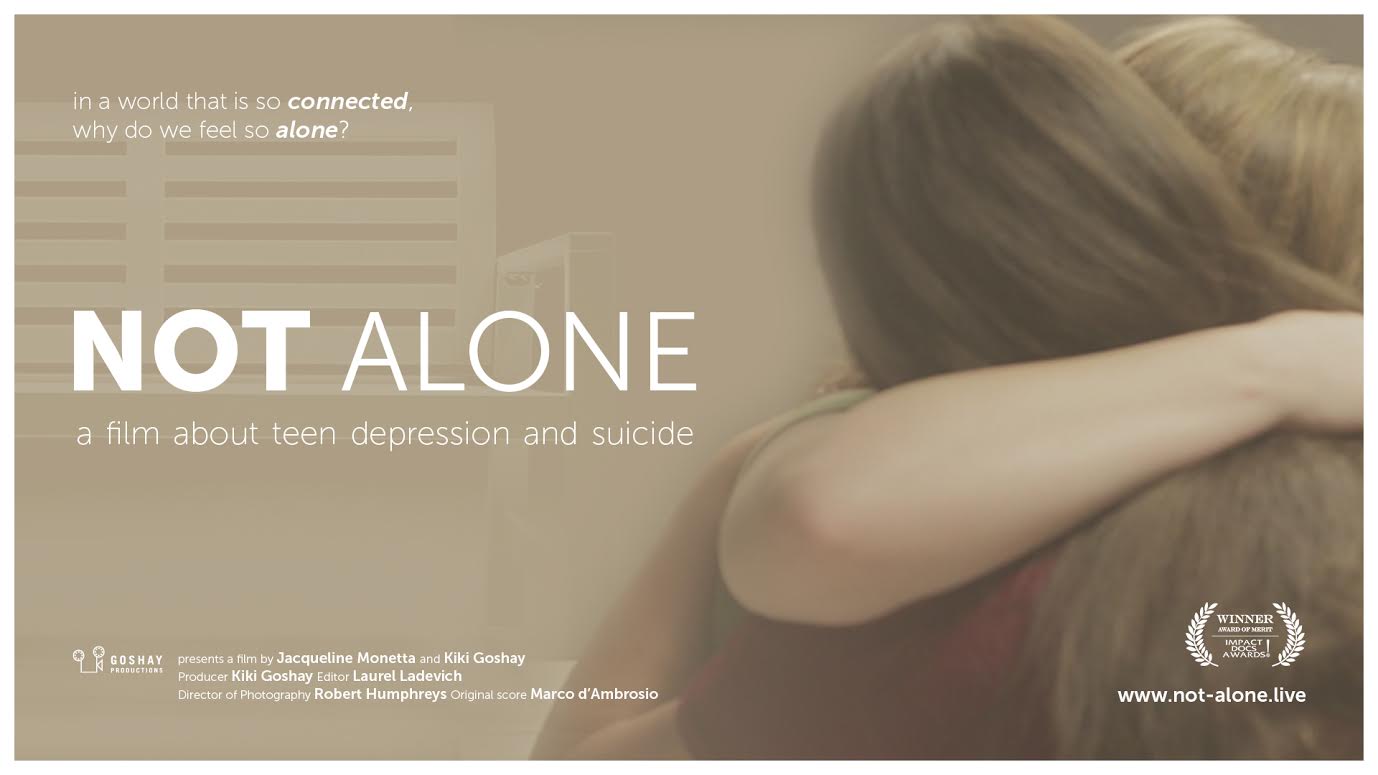Not Alone is a documentary directed by Jacqueline Monetta and Kiki Goshay that discusses depression in teenagers.
After Monetta’s high school best friend committed suicide, she questioned whether she could have said or done anything that would have helped her. She created this documentary to de-stigmatise the conversation about depression in young adults and teens, and to hopefully encourage anyone who can relate to the experiences her interviewees share in the documentary to seek help.
The documentary raises many important issues, distinguishing feelings of sadness from feeling depressed, and recognising self-harm as inclusive of substance abuse and reckless sexual activity.
The documentary also touches on the effect social media has on mental wellbeing, voicing how a space that aims to connect people can feel isolating through it’s false projections of everyone existing in perpetual state of happiness. It also examines the pressure put on millennials to continuously be striving to be better, to a point where individuals are left in a state of constant dissatisfaction and guilt, that whatever they’ve achieved, they could have done more. This is an extremely unhealthy thought process that modern day society has normalised, and that many even view as honorable.
Another significant topic the program vocialises is ‘the right’ to be depressed. One teen on the program that experienced depression described her life as ‘perfect’. She lived silently with depression for a long time because she felt immensely guilty for feeling such a way, as she did not feel she had the ‘right’ to. The program shows that depression can effect anyone, and whatever your personal situation, if you ever feel that you need help, ask for it. The paradox is that the stigma around mental illness, that leaves people trying to silently deal with their pain, can be the cause of problems bubbling over and becoming uncontrollable. Your asking for help aids in breaking down this stigma so that others in your position can access help more easily in future.
The documentary also raises the question why such a prevalent issue in the younger generation isn’t openly talked about in schools and educational institutions.
The teens also share methods that they’ve used that have helped them tackle their depression, these include therapy, anti-depressants, practicing mindfulness and meditation, exercise, and getting involved with the natural world.
In such unstable times many young people feel uncertain and scared by the prospect of their futures, but what these teens who have tackled depression share is that no matter how bad you’re feeling, there is an infinite network of people who are willing to help you any way they can, and with help and time, things will get better.
Mira Mookerjee
Image Credit: Marin Magazine

